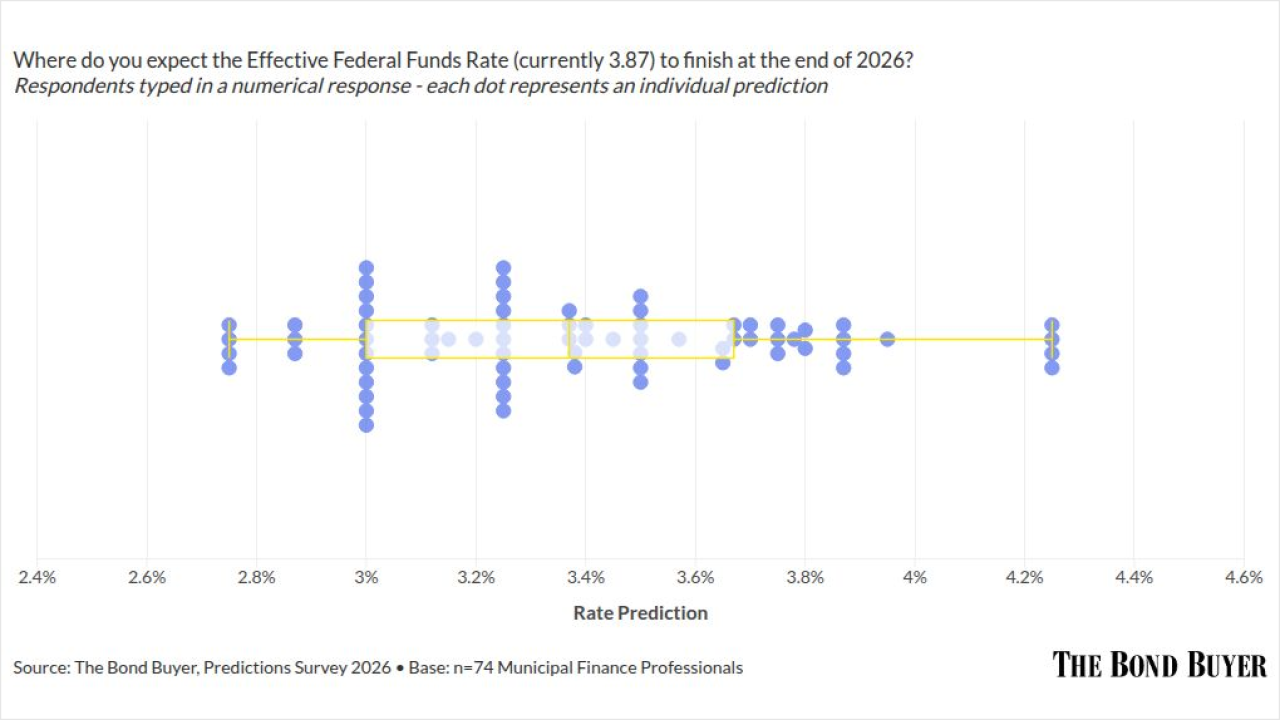Concerns about lawmakers waiting to the last minute to decide what's going into a looming omnibus bill tops the list of worries for the muni market, along with the fate of subsidy payments owed to issuers of Build America Bonds which hinge on the outgoing Congress waiving the pay-as-you-go rule before the end of the year.
These and other aspects of the economic outlook were on the discussion docket at a Thursday panel discussion hosted by the
"Right now there's about $150 billion in BABs outstanding and that means $14 billion is in question of receipt for state and local governments," said Government Finance Officers Association federal liaison Emily Brock. "Subsidy payments rely on Congress waiving PAYGO, and that is part of the omnibus conversation."
Once the new Congress convenes, Brock is eyeing a possible government-closing battle over the debt ceiling and is hoping to revisit the restoration of advance refunding which was eliminated by the 2017 Tax Cuts and Jobs Act. She's also concerned but hopeful about the ramifications of attaching the Financial Data Transparency Act to the National Defense Authorization Act.

The legislative move was an end-run around her organization's
The continued challenges posed by a tight labor market and the sound financial health of many municipalities were another topic of discussion.
"The low interest rate environment that we've just come out of really served to boost taxable borrowing significantly," said Natalie Cohen, president and founder, National Municipal Research. "We had a quirky relationship between the taxable and tax-exempt that allowed municipalities to refinance using taxable dollars refinancing tax-exempt, what that did was it allowed for municipalities to help clean up their balance sheets, boost their balances."
According to some of the panelists the surety of a recession may be wearing off. Mark Zandi, chief economist, Moody's Analytics, puts the odds at 50/50.
"I'd say better than even odds we're going to make our way through without an outright economic downturn," Zandi said. "Now, under any scenario, it's going to be a struggle," he added. Zandi cites a still strong labor market and steady consumer spending as negating factors for a crash. He predicts that by mid-2024, inflation will be in the rear view mirror and the Fed will ease up on the reins. The Fed has moved repeatedly to raise interest rates over the past few months, which is the major tool the central bank has for curbing inflation.
The tidal wave of federal spending is a primary driver of a potential quick recovery, panelists said.
"One of the unusual elements of the cycle was the strength of policy support," said Julia Coronado, president, MacroPolicy Perspectives and clinical associate professor of finance, McCombs School of Business at the University of Texas at Austin.
"It was channeled through directly to the consumer and into and benefited from it through the labor market. So we've had the fastest labor market recovery in the last four business cycles from the deepest hole. So it's just an incredibly rapid recovery."
The panel also included Phoenix, Arizona Mayor Kate Gallego, whose city is preparing to host this year's Super Bowl. Her municipality has been dealing with multiple challenges included housing affordability and the labor shortage. The two related problems are forcing innovation on the housing industry.
"We are seeing prefabricated homes or 3Dprinted homes come into this market," she said. "You'll see a lot of smaller lots that will now have container homes. It's a pretty high quality product with with great finishes but quicker to market."
Phoenix is also getting ready to launch a major addition to its public transportation infrastructure. "On Monday I'll be at our airport where we unveil a major SkyTrain addition so to move people more effectively during the Superbowl," said Gallego. "We think we'll have about a million people in our downtown which is dramatically different than when we hosted last in 2015."





